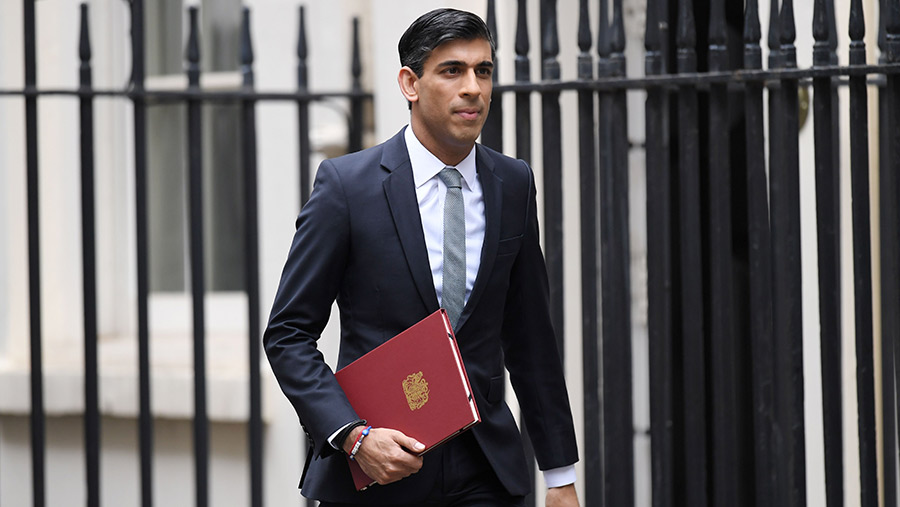Opinion: Tax reliefs under threat as Sunak seeks new revenue
 Rishi Sunak has spoken of capital gains as a type of income © James Veysey/Shutterstock
Rishi Sunak has spoken of capital gains as a type of income © James Veysey/Shutterstock Farmers have so far escaped the worst economic effects of coronavirus, with farmgate commodity prices mostly stable and the Basic Payment Scheme (BPS) still due to pay out in full.
But as the economic cost of the pandemic becomes ever clearer, might we now be in for a combination of farm subsidy cuts and additional taxation as the chancellor, Rishi Sunak, tries to cut expenditure and raise additional revenues wherever he can?
See also: Business Clinic – tax bill on family farmland buy-out
The Conservative government has always made it clear that the BPS was going to be phased out and any money saved spent on a flagship Environmental Land Management (ELM) scheme.
But with government finances now in such a mess there will surely be pressure to divert money saved through cuts to farm subsidies towards vital public services.
An equally powerful economic threat for farmers in the wake of the pandemic is a potential increase in taxation. Famously, farmers don’t have much to fear from income tax as many of us don’t have much income.
But increases in capital gains tax (CGT) will be a different matter. Even a small owner-occupied farm of, say, 35ha with buildings and a period farmhouse is currently worth close to £2 million.
Mr Sunak has now asked the Office of Tax Simplification (OTS) to investigate how capital gains are taxed in the UK to “ensure the system is fit for purpose” and to consider how capital gains “are taxed compared to other types of income”.
It seems very strange to hear the chancellor describe capital gains as a “type of income”, but the implication for farmers of this muddled thinking is potentially disastrous. Any increase in the value of farmland might soon be treated as “income” and, if we sell it, be taxed at the same rate.
On top of that possible change, the OTS is also investigating all the various CGT reliefs. Presumably this will include roll-over relief, which allows anyone lucky enough to sell land for development to roll over any profit into the purchase of more farmland, free of tax.
As things stand, “entrepreneurs’ relief” allows a farmer to sell up to £10m worth of assets and pay only 10% in CGT. Such a low rate might look like dreamland after the autumn budget if that relief is withdrawn.
In the longer term, if we see CGT rates leap to 45% or more and all reliefs withdrawn, the already limited supply of farmland will surely dry up entirely.
Who will want to sell their farm and see the exchequer take nearly half of it? And if any debt is attached to the land, the seller might end up with less than nothing by the time the tax has been paid.
Similarly, if CGT rates are raised to the same level as income tax, but roll-over relief is left in place, any farmers selling development land will be very eager to buy whatever farmland is for sale to avoid paying such a large CGT bill. This runs the risk of driving farmland prices still higher than they are today.
What the OTS reports to Mr Sunak, of course, remains to be seen, but whatever it recommends is likely to be in place before the autumn budget.
A chancellor desperately seeking ways to cut government expenditure and raise revenue in the wake of coronavirus might think farmers, with their subsidies and often high capital worth, look like easy pickings.
